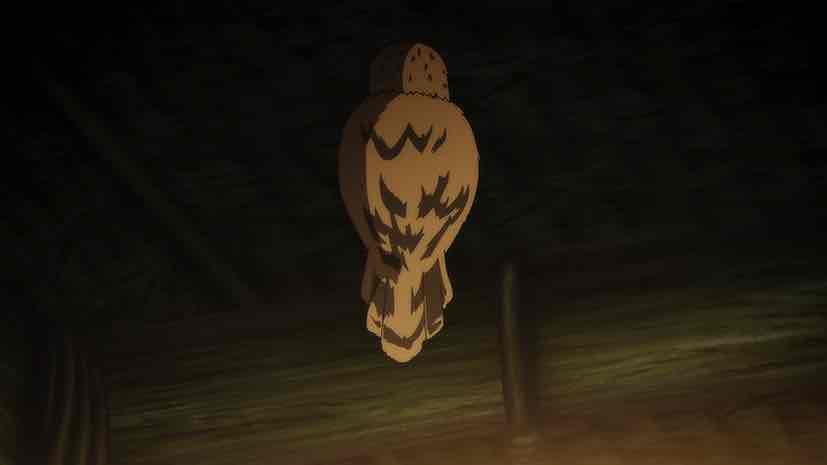 I’d have to say I feel measurably better about the second season of Fumetsu no Anate e after this episode than after the premiere. Perhaps folly given how all over the map this series is, but it was a much better episode plain and simple. It’s natural to feel more positive after that. Still, these two eps have avoided the wild extremes that seem to be Fumetsu’s trademark – the first was pretty good, and this one didn’t reach the masterpiece level. Staying within that range for a while would actually be pretty welcome – it would make watching the show a more comfortable (and less aggravating) experience.
I’d have to say I feel measurably better about the second season of Fumetsu no Anate e after this episode than after the premiere. Perhaps folly given how all over the map this series is, but it was a much better episode plain and simple. It’s natural to feel more positive after that. Still, these two eps have avoided the wild extremes that seem to be Fumetsu’s trademark – the first was pretty good, and this one didn’t reach the masterpiece level. Staying within that range for a while would actually be pretty welcome – it would make watching the show a more comfortable (and less aggravating) experience.
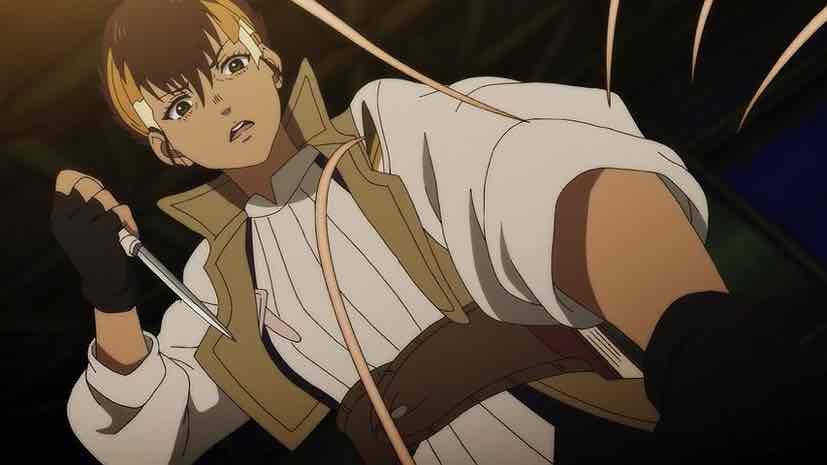 Given that Fushi is not human, it’s somewhat ironic that To Your Eternity is at its best when it focuses on the most human element of his experience (but then, that’s often the case). In fact protagonists of stories with this theme – immortals, elves, Gods, whatever – are pretty much not human by default. For someone who lives forever or a very, very long time, having human emotions is a pretty cruel fate. They’re doomed to see everyone they love grow old and die (if they’re lucky), and leave them behind. You get the sense that it’s not the sort of thing Fushi’s creator took into account when he made him.
Given that Fushi is not human, it’s somewhat ironic that To Your Eternity is at its best when it focuses on the most human element of his experience (but then, that’s often the case). In fact protagonists of stories with this theme – immortals, elves, Gods, whatever – are pretty much not human by default. For someone who lives forever or a very, very long time, having human emotions is a pretty cruel fate. They’re doomed to see everyone they love grow old and die (if they’re lucky), and leave them behind. You get the sense that it’s not the sort of thing Fushi’s creator took into account when he made him.
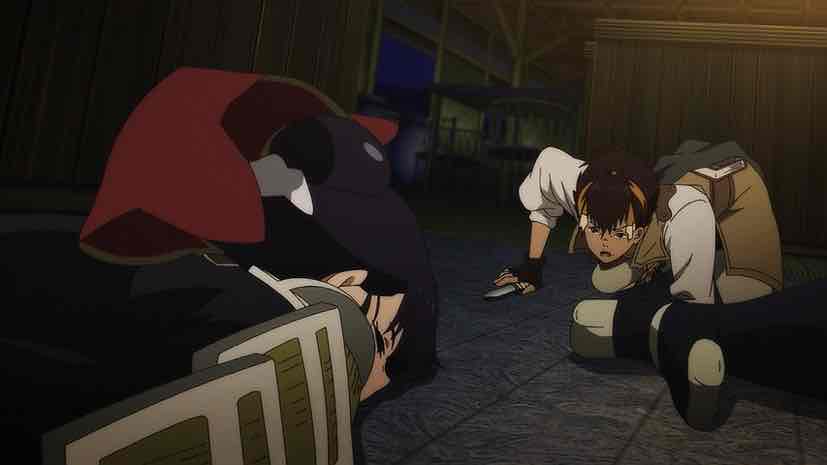 Fushi’s dilemma is a dramatization of that fundamental one we all face. Do we allow others into our hearts, knowing that all relationships end with a parting one way or the other? Or do we seal ourselves off, not allowing anyone to become close to us, and live a life of loneliness in exchange for freeing ourselves from the specter of loss? When you’re immortal like Fushi the balance sheet seems tilted in favor of the latter option, so it’s not surprising that he would choose that path. But life has never been content to leave him to his own devices, and it’s not about to start now.
Fushi’s dilemma is a dramatization of that fundamental one we all face. Do we allow others into our hearts, knowing that all relationships end with a parting one way or the other? Or do we seal ourselves off, not allowing anyone to become close to us, and live a life of loneliness in exchange for freeing ourselves from the specter of loss? When you’re immortal like Fushi the balance sheet seems tilted in favor of the latter option, so it’s not surprising that he would choose that path. But life has never been content to leave him to his own devices, and it’s not about to start now.
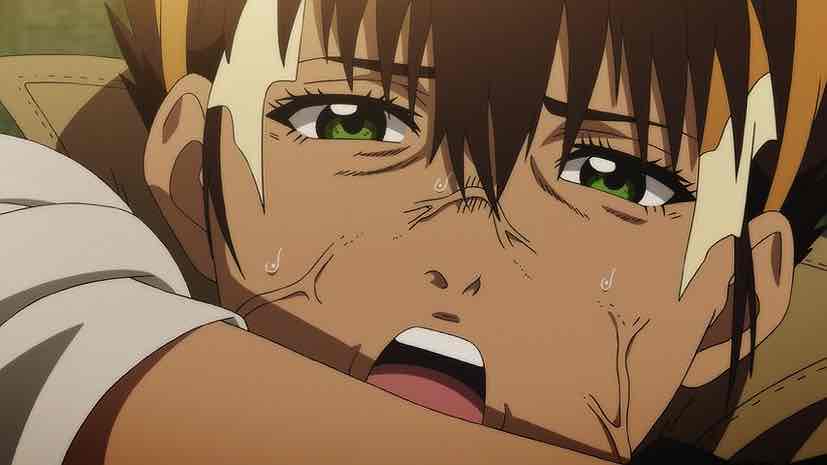 I won’t deny I feel considerable relief that Tonari and Hisame are not long-term baggage for Fumetsu to carry. Tonari checks out pretty quickly in fact, done dirty by the Nokker in Hisame’s arm. Fushi has no idea that the woman he’s encountered is Tonari – or indeed that the man is Sander, her childhood companion – until after she passes and he’s able to take on her form. As for Hisame she has one last encounter with Fushi in the woods, and their conversation reveals that Fushi is shockingly ill-informed about matters of intimacy. I suppose if the Creator has felt it was urgent he would have had the talk with Fushi, but his lack of curiosity on this topic suggests that particular imperative is not a trait he shares with the human race.
I won’t deny I feel considerable relief that Tonari and Hisame are not long-term baggage for Fumetsu to carry. Tonari checks out pretty quickly in fact, done dirty by the Nokker in Hisame’s arm. Fushi has no idea that the woman he’s encountered is Tonari – or indeed that the man is Sander, her childhood companion – until after she passes and he’s able to take on her form. As for Hisame she has one last encounter with Fushi in the woods, and their conversation reveals that Fushi is shockingly ill-informed about matters of intimacy. I suppose if the Creator has felt it was urgent he would have had the talk with Fushi, but his lack of curiosity on this topic suggests that particular imperative is not a trait he shares with the human race.
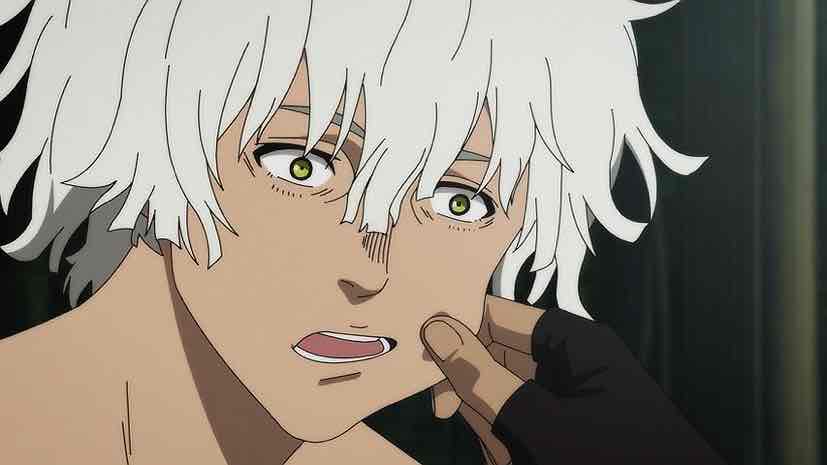 For I minute there I thought the Creator’s “go to town” advice was a very out of character bit of double entendre, but he means it more generally. The reasoning for Fushi to reengage is pretty sound – Nokkers are attacking people whether Fushi is around or not. Fushi develops a system where he never stays more than two days in any town, which allows him to move on before the Nokkers arrive. Of course money is never a problem (though obesity is), so this life seems like a decent compromise for him – he can be with people without drawing close to any of them. Periodically the successors of Hayase show up, but Fushi never makes a baby with any of them.
For I minute there I thought the Creator’s “go to town” advice was a very out of character bit of double entendre, but he means it more generally. The reasoning for Fushi to reengage is pretty sound – Nokkers are attacking people whether Fushi is around or not. Fushi develops a system where he never stays more than two days in any town, which allows him to move on before the Nokkers arrive. Of course money is never a problem (though obesity is), so this life seems like a decent compromise for him – he can be with people without drawing close to any of them. Periodically the successors of Hayase show up, but Fushi never makes a baby with any of them.
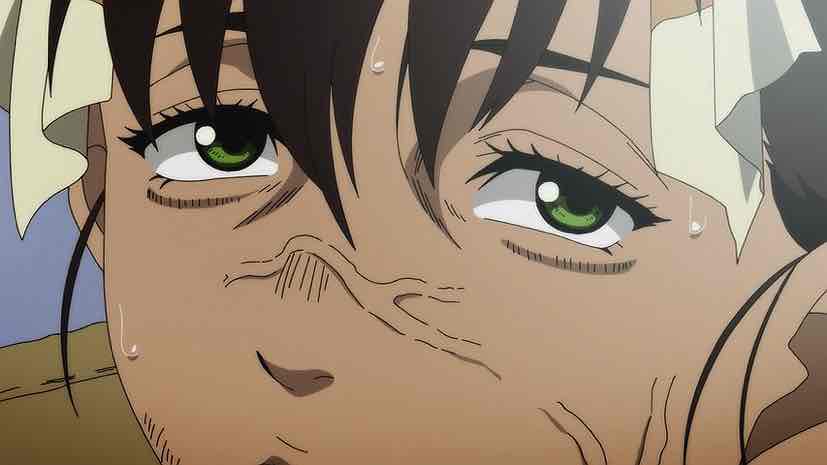 A long time passes here – four generations by my count, so probably about a century – without any obvious advance in technology. The sixth successor is categorically different than the others – it’s a man, Kahaku (Saiga Mitsuki). Why the first five successors were all female I don’t know – it could be coincidence but I doubt it. And if Kahaku wanted to fulfill Hisame’s pledge of making a baby with Fushi that could certainly be done, given his catalog of identities. But there’s no indication that’s on either of their minds here. Instead, it seems we’re going to rejoin the main channel of the plot now, with the pacing slowing back down to levels more akin to the first season. Which would, in effect, make the first two episodes of the season the prologue, and next week the beginning of the main story.
A long time passes here – four generations by my count, so probably about a century – without any obvious advance in technology. The sixth successor is categorically different than the others – it’s a man, Kahaku (Saiga Mitsuki). Why the first five successors were all female I don’t know – it could be coincidence but I doubt it. And if Kahaku wanted to fulfill Hisame’s pledge of making a baby with Fushi that could certainly be done, given his catalog of identities. But there’s no indication that’s on either of their minds here. Instead, it seems we’re going to rejoin the main channel of the plot now, with the pacing slowing back down to levels more akin to the first season. Which would, in effect, make the first two episodes of the season the prologue, and next week the beginning of the main story.


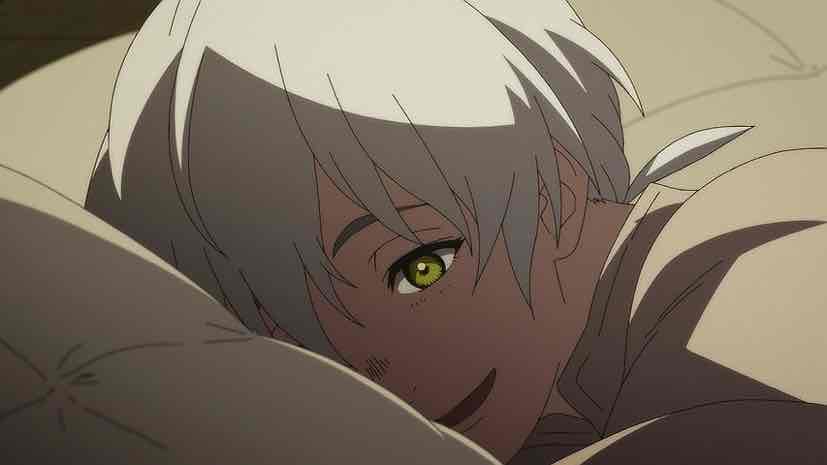


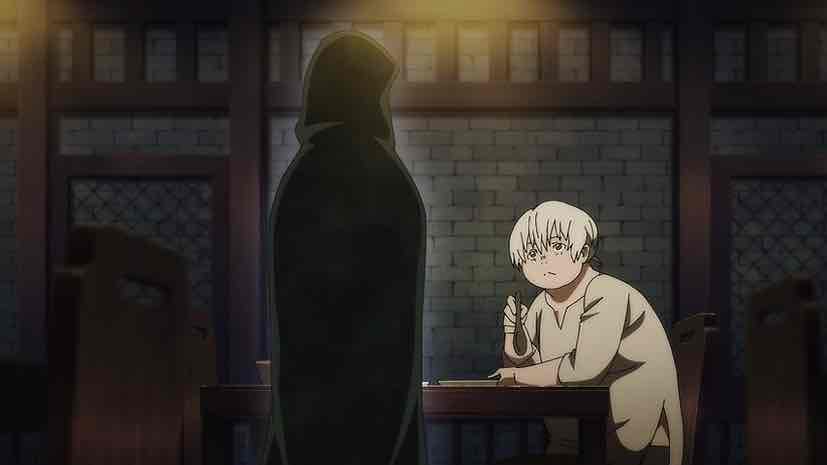
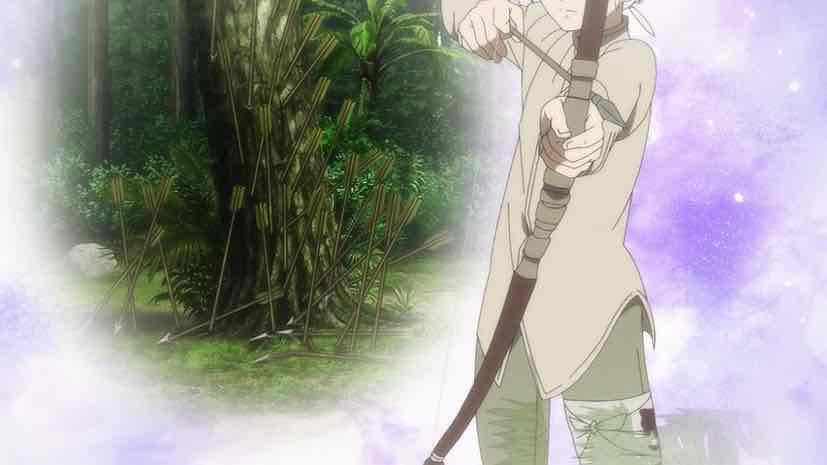


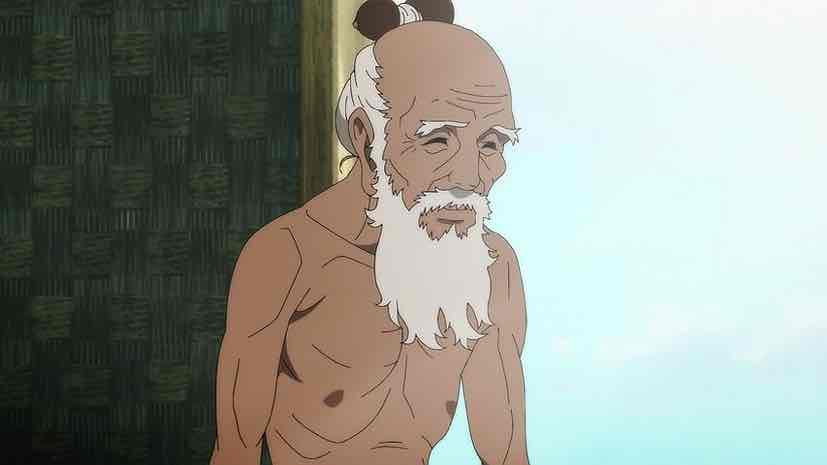
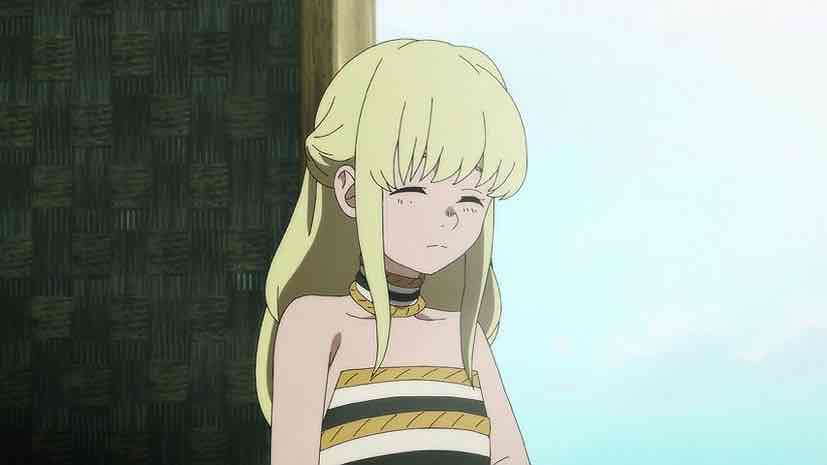
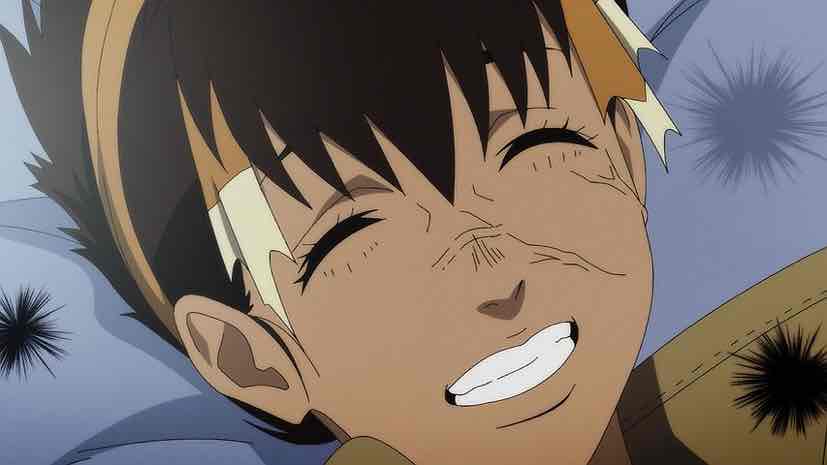

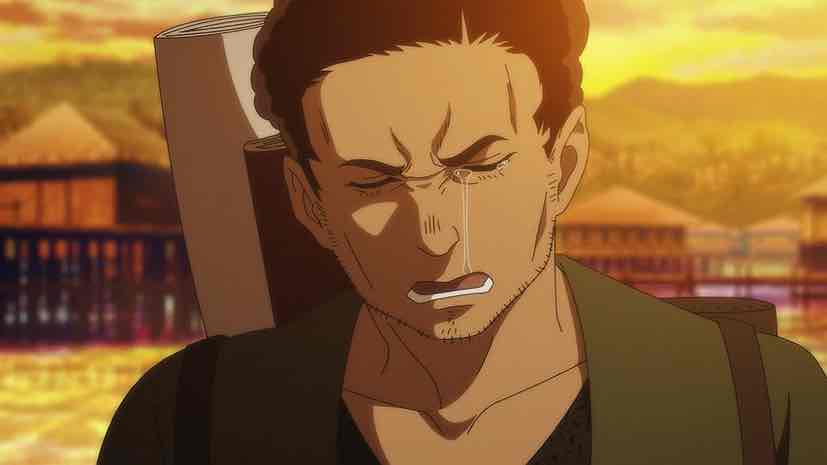
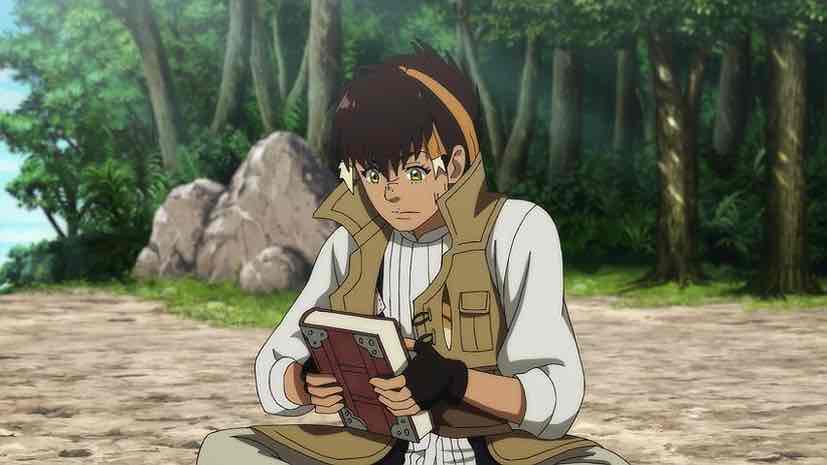

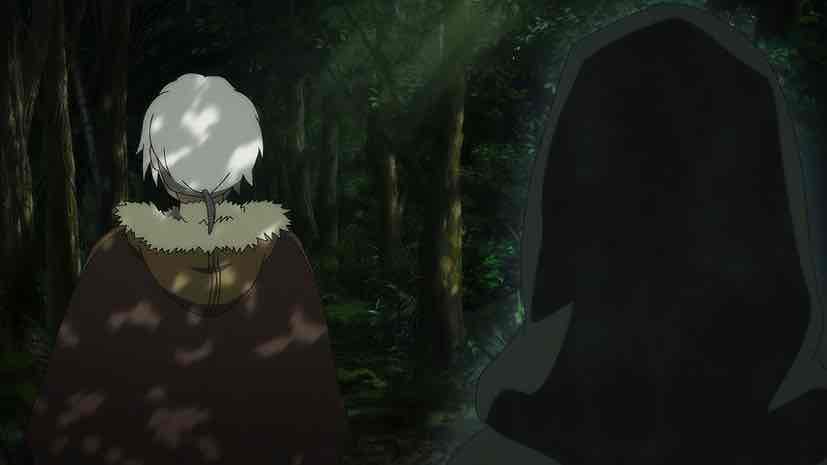
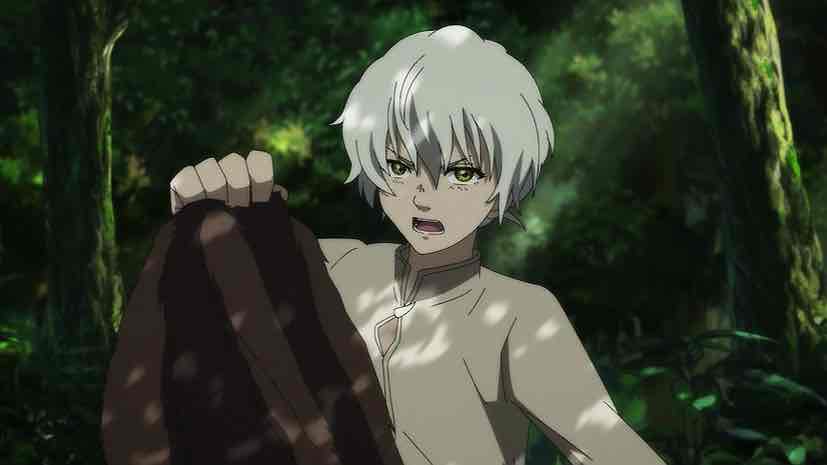
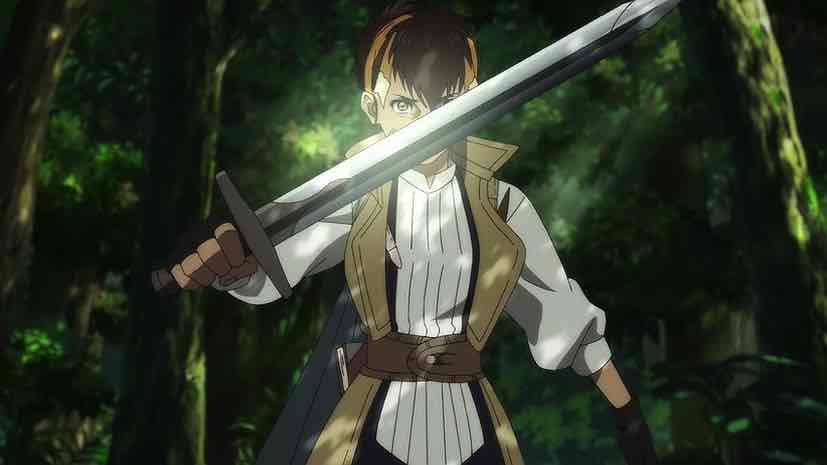
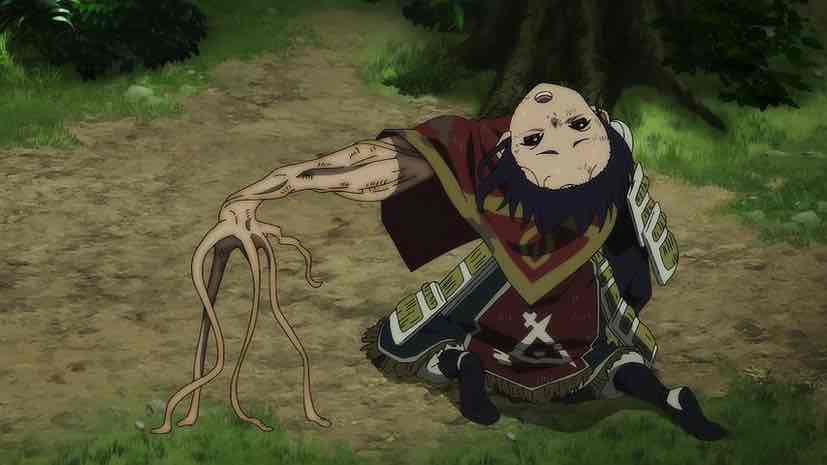
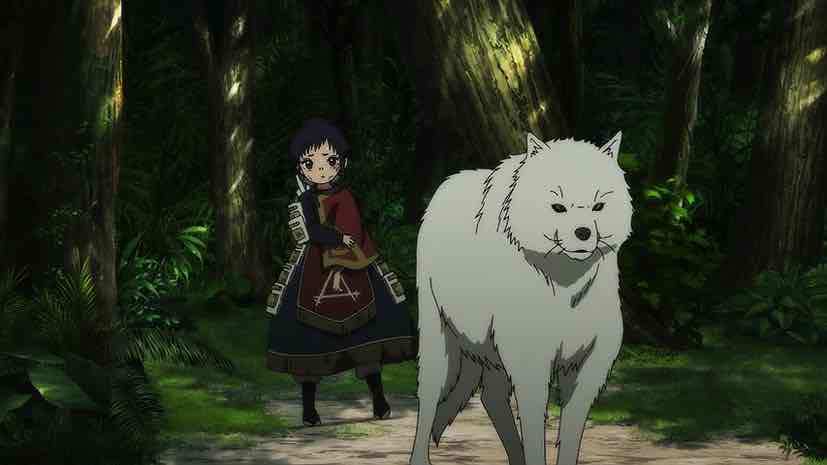



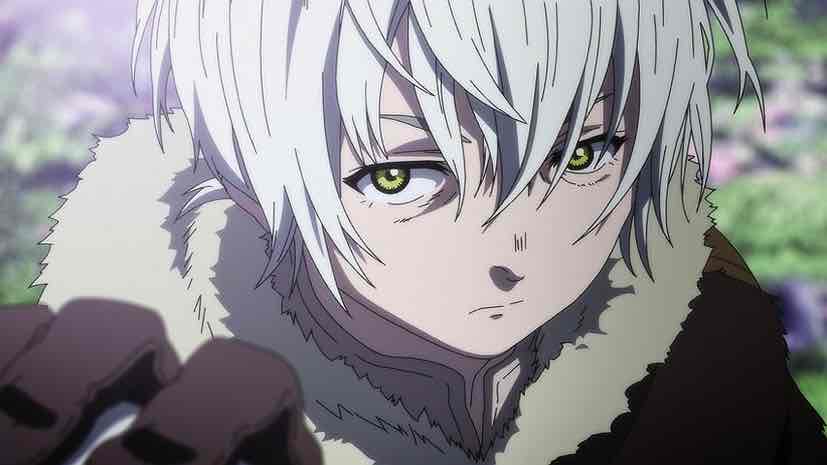
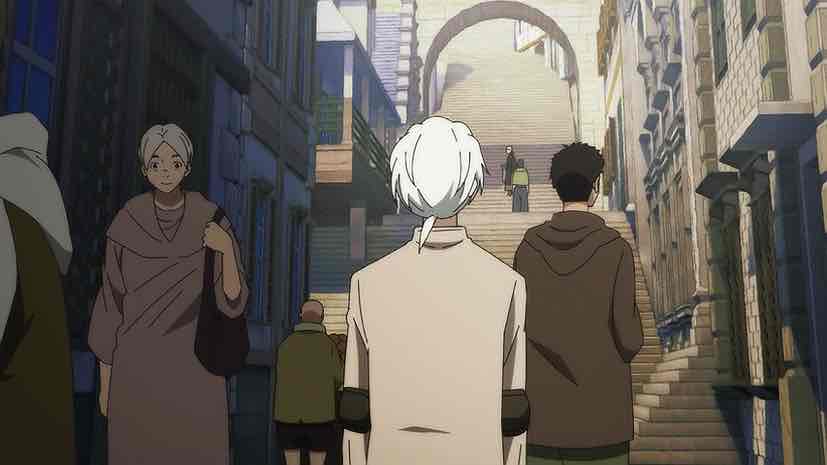
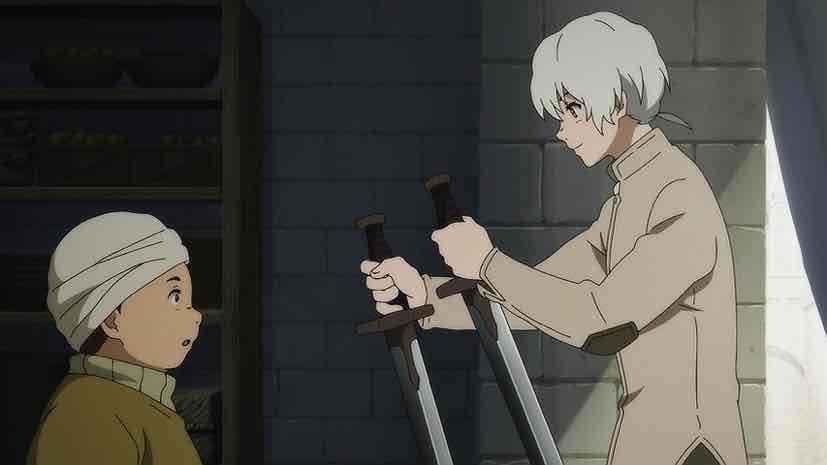
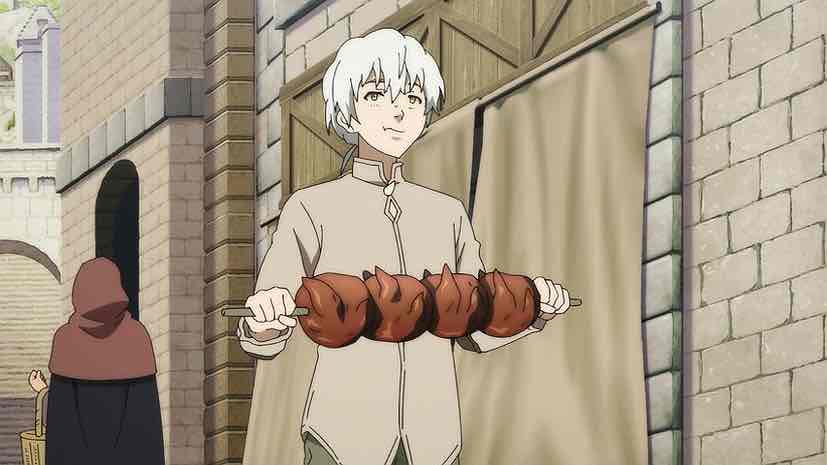
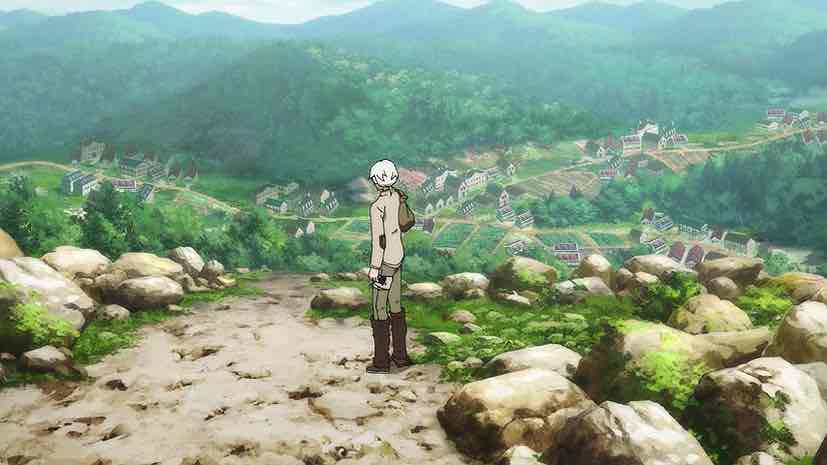

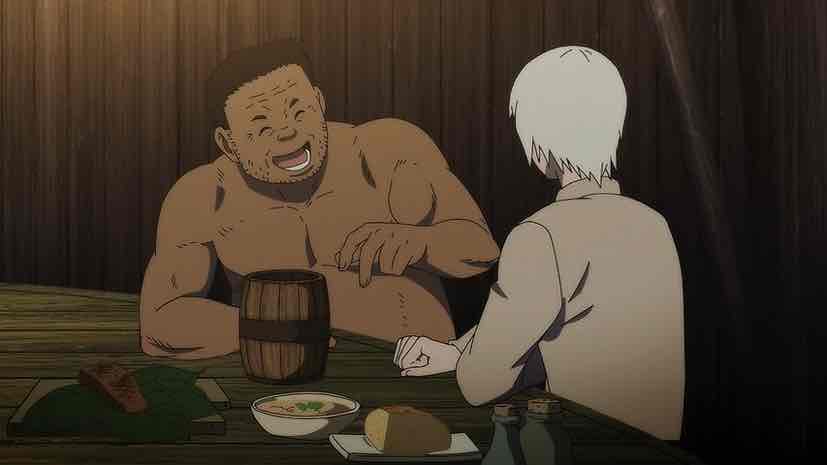
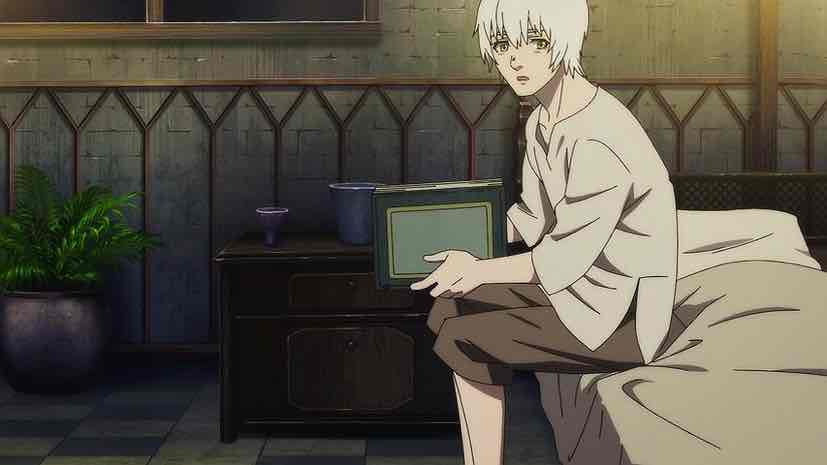
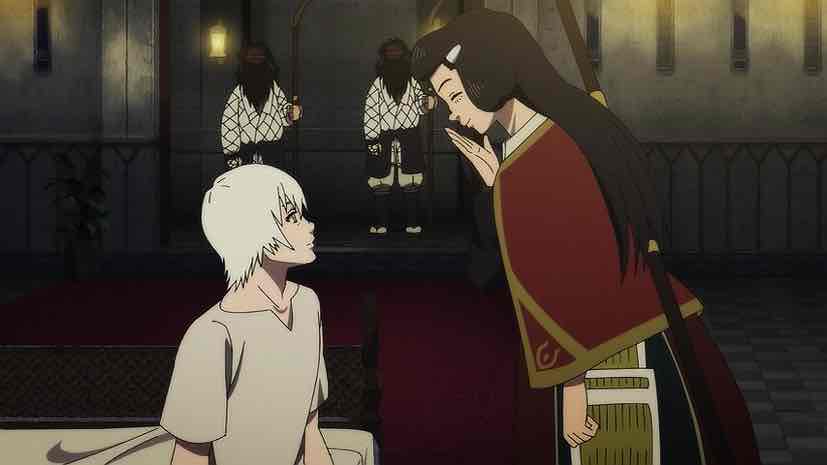

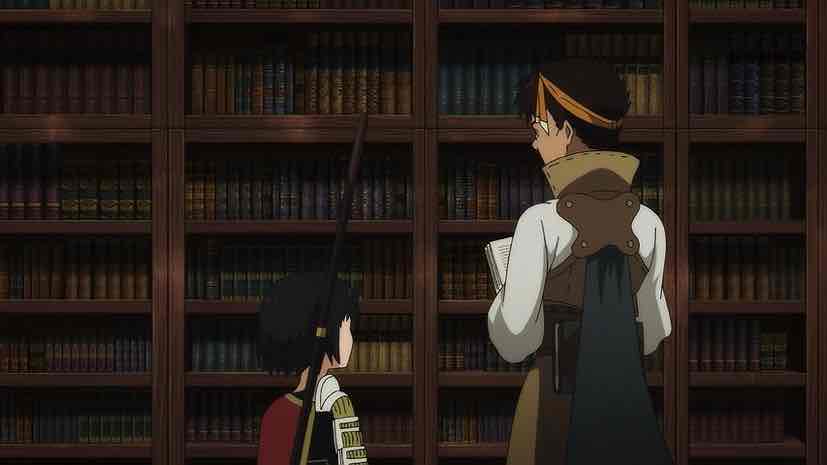
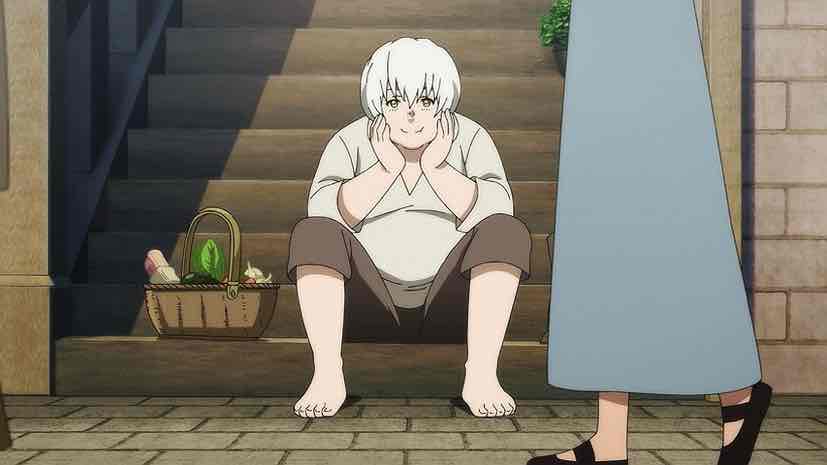
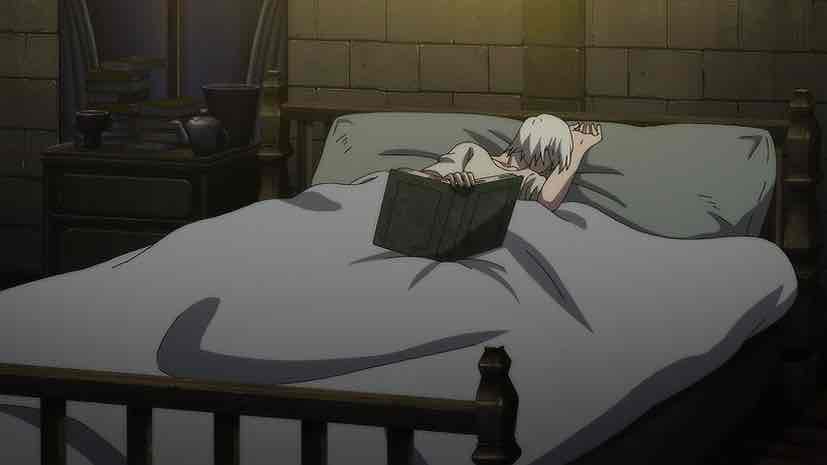
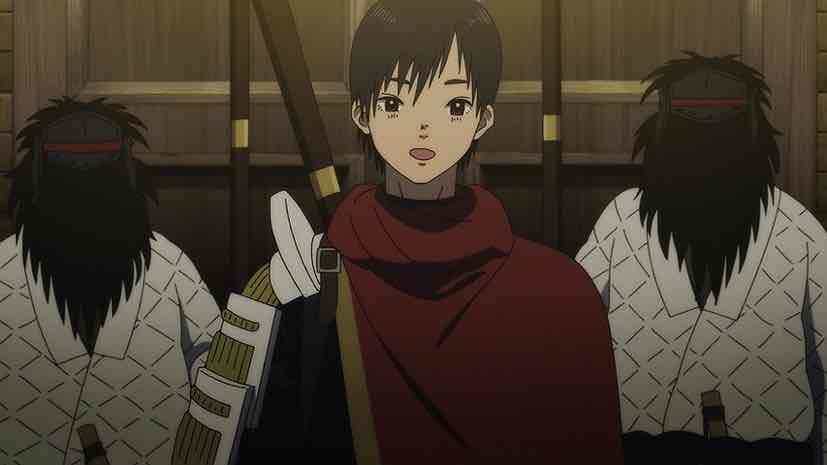
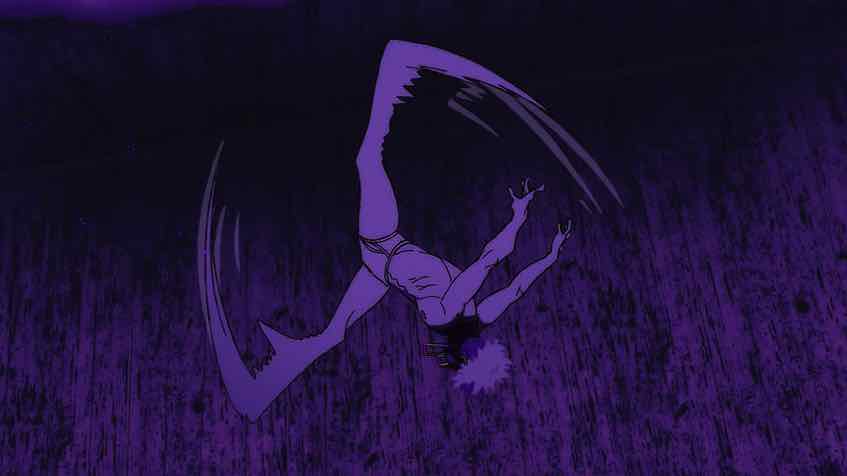
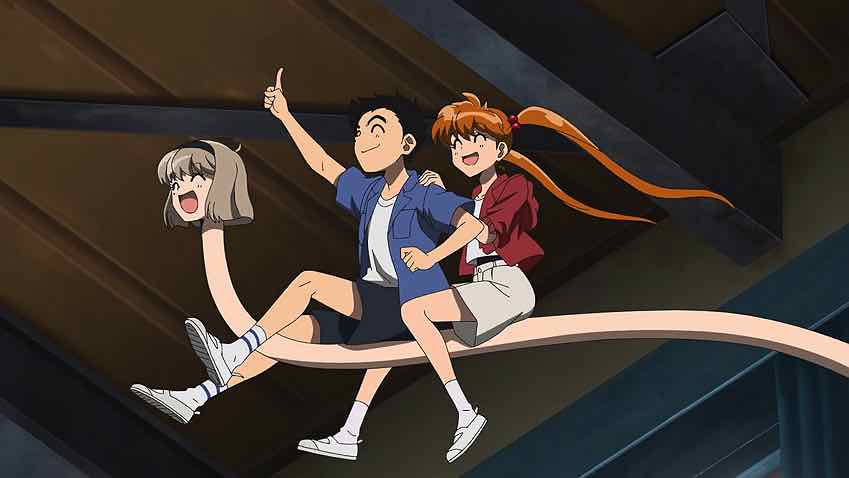
Simone
November 5, 2022 at 7:17 pmI think the “go to town” line was a translator’s way of trying to get whatever the original pun/misunderstanding was (since then Fushi is confused and his creator simply responds with a sigh and “yeah just suggesting you may visit a city”). I suppose in Japanese it was something that sounded a bit less crude and more fitting to the character. Compromises have to be made and all that.
That said, holy fast pacing Batman. This episode covered what, a 100 years’ worth of time span? I get the general idea of Fushi letting time slip past him, but I wish the show did a bit more with that premise, showing the world changing with time for example. Reminds me of the Sandman’s chapter (and episode in the Netflix show) about a similar immortal who checks in with the titular Dream Lord every 100 years in the same pub. Every time the environment is both very different in some ways and very similar in others, which does a great job conveying both the flow of history and the universals of the human experience.
Guardian Enzo
November 5, 2022 at 10:44 pmNot every writer is on Gaiman’s level, unfortunately.
Joshua
November 5, 2022 at 11:30 pmI would complain that the showrunners chose to rush through this whole arc normally, but in the case of this series, it was a mercy kill. The focus is clearly on the next couple of arcs it seems as they are probably going to end at the end of the first part of the manga supposedly.